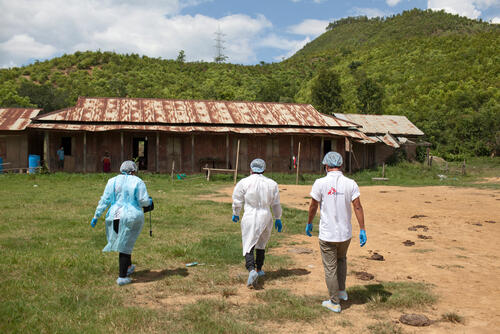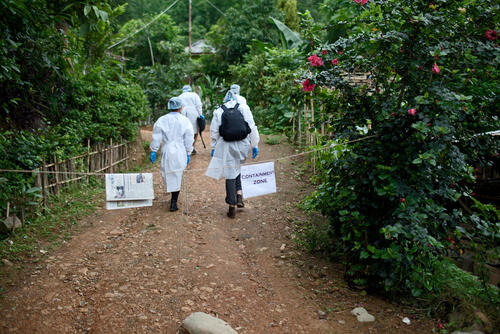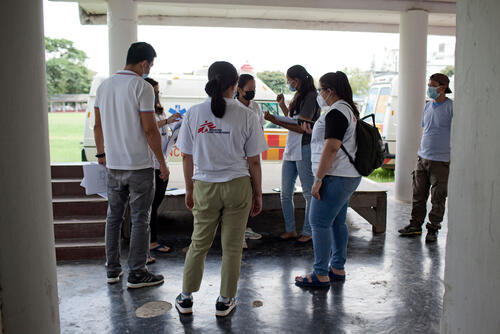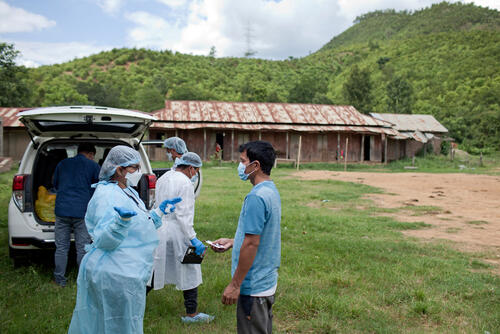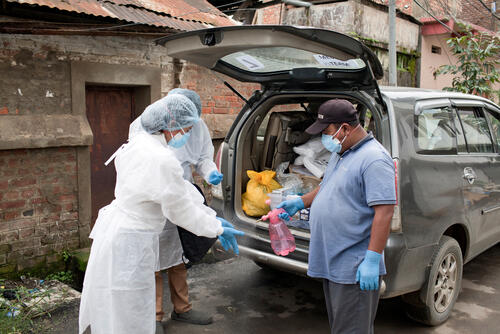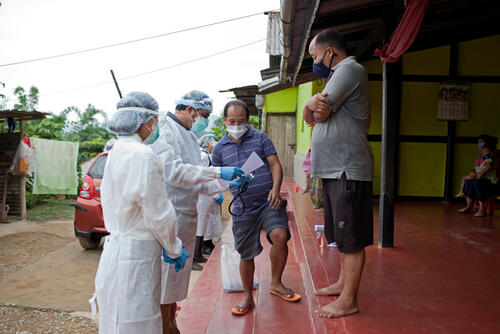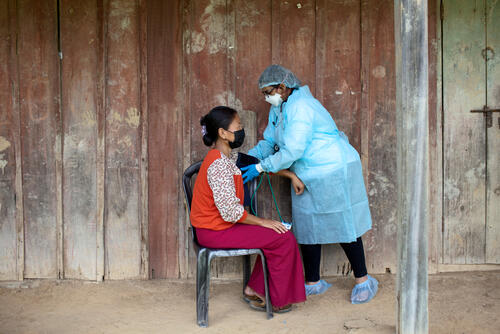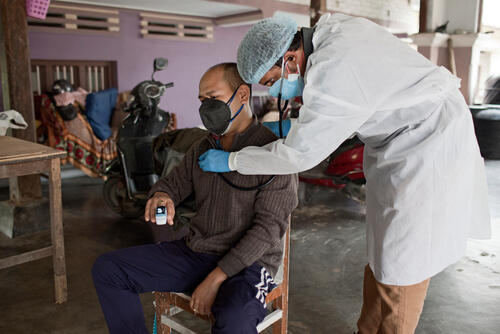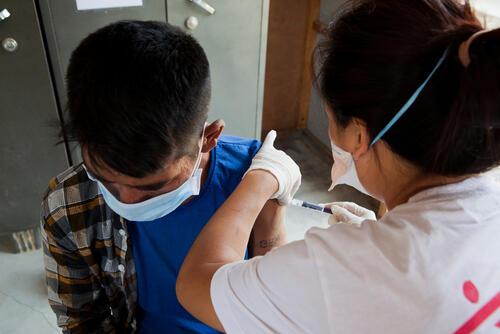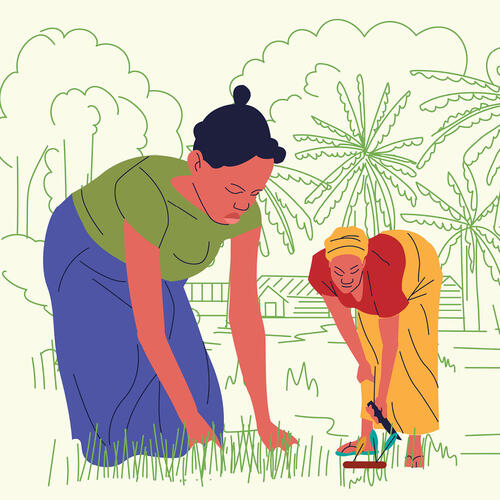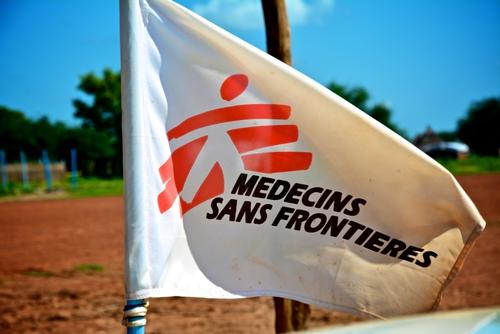A severe second wave of COVID-19 hit India at the end of March 2021. In April, Médecins Sans Frontières (MSF) sent teams of doctors and nurses to work in Mumbai’s Jumbo Hospital that had capacity for 2,000 patients.
With a relatively small presence in India, MSF was not best placed to react to the initial devastating impact of COVID-19 in the major cities. Our teams started looking to see where we could meet health needs outside of Delhi and Mumbai. In June 2021, we launched a small emergency response in Manipur state, in the country’s far northeast, to provide support for COVID-19, following a request for help from the Ministry of Health.
Launching an emergency response
Imphal, the capital of Manipur state, is home to almost half of the state’s urban population, with numerous dialects, beliefs and ethnic groups in its territory. As the second COVID-19 wave swept through India, Manipur felt the effects too.
Our response aimed to assist those not able to access healthcare facilities due to cost, distance, stigma, and other barriers.
In order to reach people, cut off from the city’s health services and isolating at home, we formed mobile response teams comprised of doctors, health workers, and drivers, who travelled several kilometres across the Imphal valley every day to visit people isolating with confirmed or suspected COVID-19.
With more than 30 different dialects in this culturally and ethnically diverse area, community health workers with different language skills and local knowledge play a major part in ensuring that MSF teams reach vulnerable patients from different backgrounds.
“We quickly realised that it was important to expand the catchment areas of MSF’s mobile response teams to the more rural areas outside of Imphal – where access to healthcare is more challenging,” says Luca Pigozzi, MSF’s Medical Team Leader during the emergency response in Imphal.
“We managed to expand our outreach and mobile response teams to neighbouring districts of Thoubal and Bishnupur, and to establish collaboration with district hospitals and COVID care centres.”
Launching an emergency response during a global pandemic presented our teams with enormous challenges, but for 26-year-old doctor Ashwin Krishnamoorty, working in a Mobile Response Team with MSF provided an opportunity to connect with patients and provide quality care free of charge.
“Working as part of a mobile response team, I have got a glimpse into the culture, understood better the overall healthcare situation here, and got to know the perceptions people have about COVID-19,” says Dr Krishnamoorty.
Our mobile response teams visit as many as 11 households in a single day. They provide in-person examinations, hygiene kits containing items like soap for handwashing, and share health education messages around good hygiene and infection prevention and control measures to minimize the risk of COVID-19 spreading.
As a core part of our activities, we set up a 42-bed high dependency unit (HDU) for COVID-19 patients at Little Flower School, a private convent school near Imphal airport. It received patients suffering from severe COVID-19 and provided high flow oxygen and non-invasive ventilation. Some patients were referred directly by our mobile response teams.
“After we started working outside of Imphal, we noticed immediately that our HDU was filling with people who came from areas with more vulnerabilities,” says Luca.
The high demand for beds in hospitals has meant that some hospitals only accept patients referred by a medical doctor. MSF’s mobile teams are able to provide these referrals when they meet people in need of additional care during home visits.
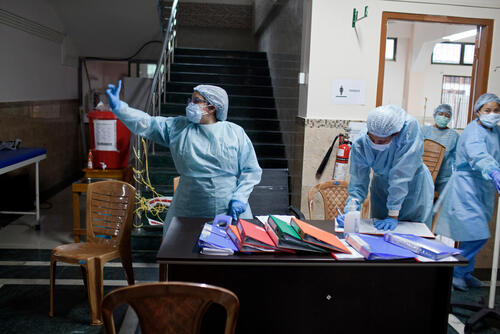
We wrapped up our emergency response in the Imphal valley in mid-October 2021 after no new patient admissions and an apparent decrease in the incidence of COVID-19.
During our activities, we were able to provide surge capacity to a health system overwhelmed with severe and critical COVID-19 cases. Vulnerable and remote people outside Imphal could access treatment for severe COVID-19 and a referral pathway to treatment of critical COVID-19. High-risk patients were identified early and referred to the appropriate level of care.
The 42-bed High Dependency Unit (HDU) that was set up admitted a total of 265 patients with bed occupancy rates reaching 97 per cent during peak periods in July.
The MSF mobile medical teams that visited state-run isolation centres in rural areas and provided care to patients in their own homes, carried out more than 600 patient examinations. They referred (and transported) 222 patients to the MSF high dependency unit. In addition, around 1,200 patients with mild to moderate COVID-19 were treated in their own homes.
Our outreach teams visited 54 villages in remote and rural areas with a high burden of COVID-19, and distributed 660 hygiene kits. Engagement with the community was essential to better understand local knowledge and perceptions about the disease. By establishing a feedback loop with communities, we could try to find ways to increase access to testing and treatment.



